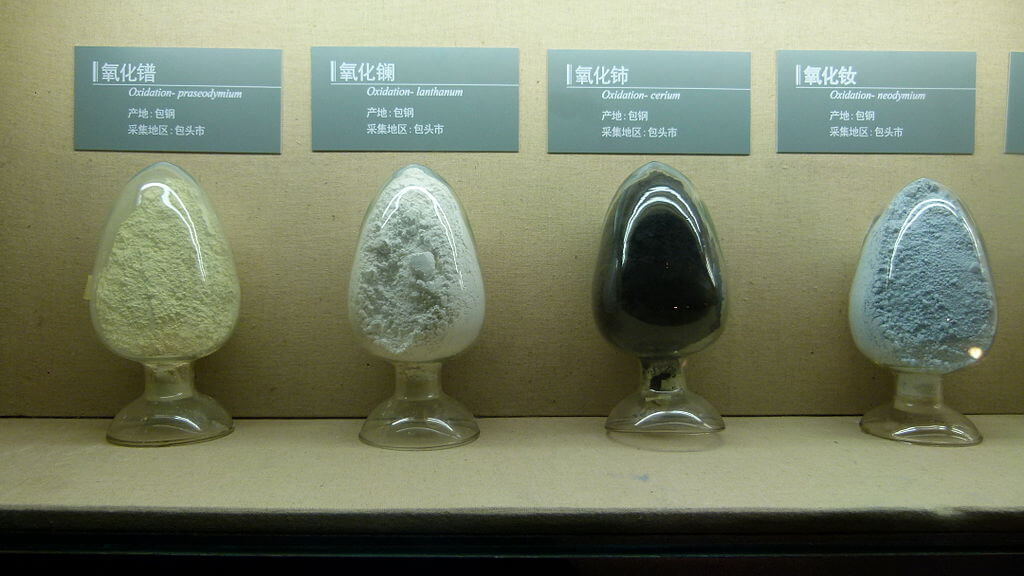A world commodities rebalancing is underway, and China is in a position of dominance. Take lithium, where China is a major processor and battery manufacturer; cobalt, where China has dominated the supply chains; and rare earths, where China has an almost total monopoly. Taken together, these three commodities are key to the future of alternative energy, electric vehicles, mobile phones, and even headphones.
Having stated that he was “fervently Sinophile,” British Prime Minister Boris Johnson in the House of Commons recently described lithium deposits in England’s rugged southwestern county of Cornwall as “the Klondike” of lithium. Johnson is known for his grandiloquence, but he knows about the importance of lithium in the age of the lithium-ion battery, and a big lithium mine will open in Cornwall in 2026.
This kind of economic activity points to the re-evaluation and rebalancing of the world’s vital, non-agricultural commodities, reflecting the need for new raw materials for national survival as the demands of technology have changed.
The rare earth elements — there are 17 of them but only four are in demand — are the great multipliers of the modern electronic age. I have seen how this works with the equivalent of a refrigerator magnet. A traditional magnet has a slight pull toward the metal surface. Try it with a magnet that has been enhanced with one of the rare earths, neodymium, and you will find the attraction to the metal of the refrigerator so strong that the magnet will fly out of your hand — and it will take a muscular tug to remove it.
Enhanced magnetism is what makes wind turbines economically feasible. Wind turbines wouldn’t produce enough electricity to make them economical without that multiplier.
The problem is that 95 percent of the rare earths now mined and processed come from China.
This gives the Chinese the ability to choke off the West’s economies while the struggle to produce the vital elements elsewhere (and they are well distributed throughout the Earth’s crust) is mounted.
David Zaikin, a Ukrainian-born Canadian citizen working in London, knows as much about the world resource line-up and China’s influence as anyone. He is the CEO of Key Elements Group, and an alumnus and founder of the Mining Club at the London Business School.
“China is out there and is trying to win every race globally. The West must do everything it can to subvert its efforts and find alternative nations to work with,” Zaikin says.
“The good news is that there are friendly nations like Canada, Australia, and India that are naturally very rich in rare earths. They are well-positioned to bridge the gap in potential rare earths shortages, or in the event those are weaponized by the PRC,” he says, “The bad news is that it takes a long time to begin commercial production, and the right time to start was yesterday.”
The Mountain Pass mine, which lies in the Mojave Desert in California, is in production after a hiatus. But that doesn’t mean much in terms of our Chinese dependence. The production from California is shipped to China for processing and then shipped back to the United States. The mine has also been financed by the Chinese.
The inhibition to mining for rare earths, as John Kutsch, executive director of the Thorium Energy Alliance, explains, is thorium, which isn’t a rare earth element, but which is found in conjunction with rare earths, especially in the United States.
Thorium is a fertile nuclear material and is classified as such by the Nuclear Regulatory Commission and the International Atomic Energy Agency, so miners have to account for it, and it has to be stored and disposed of as nuclear waste.
Until a national thorium bank is established, as supported by Kutsch and his group, we will be looking elsewhere.
Zaikin says, “As the West pursues green policies and becomes more independent of imported oil, it will reduce the influence that the GCC [Gulf Cooperation Council] and other oil-producing nations have on domestic and international policies.”
He adds, “However, by moving from oil into renewable energy, the West increasingly finds itself at the mercy of China. This is why it is crucial that the West includes nuclear power in its green vision of the future, in order to avoid the weaponization of energy by hostile powers.”

 Follow
Follow
Leave a Reply